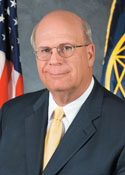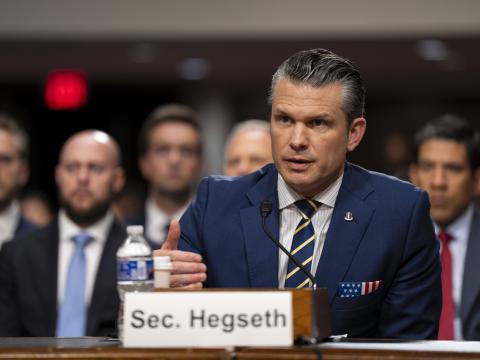Homeland Security Enters a Challenging Period
 |
The concerns and responses in various regions of the world are remarkably similar. In the United States, Department of Homeland Security Secretary Janet Napolitano recently stated that the established U.S. priorities are to prevent terrorism and enhance security; to secure and manage borders; to enforce and administer immigration laws; to safeguard and secure cyberspace; to ensure resilience to disaster; and to mature and strengthen the homeland security enterprise.
Similarly, the European Union Internal Security Strategy identifies five steps toward a more secure Europe: the disruption of international criminal networks; the prevention of terrorism and addressing radicalization and recruitment; raising the levels of security for citizens and businesses in cyberspace; strengthening security through border management; and increasing Europe’s resilience to crises and disasters.
In the Asia-Pacific region, the path forward is not as clear but seems consistent. The East-West Center conducts annual surveys of opinion among area leaders on security issues. While it has found “little overall agreement” across the region on priorities, the center believes the issues are reasonably consistent. Continuing tensions on the Korean Peninsula, terrorism, natural disasters, pandemics and cybersecurity are the principle concerns that cut across the region.
The global economic crisis is aggravating the problem everywhere because, while aggressive programs are in place, budgets are shrinking at an alarming rate. As an example, the U.S. Budget Control Act (BCA) mandates debt reduction over a 10-year period beginning in 2013. Unless changes are made, the Department of Homeland Security would see a 7.8 percent budget reduction over the 10-year period ending in 2022. In 2010, Adm. Mike Mullen, USN (Ret.), former chairman of the U.S. Joint Chiefs of Staff, said that, “The single biggest threat to our national security is our debt.” These budget and debt reduction efforts in the United States and elsewhere consume the resources needed to implement aggressive security programs. Some very innovative cost reductions are going to be necessary to protect the money needed to continue progress on these critical security programs.
So, what can AFCEA do to help? The association’s global reach places it in a perfect position to promote dialogue among governments, industry and academia to help address these key issues. This can be done at the regional, national and international levels. Often we can help cut across organizational boundaries to encourage a dialogue that otherwise would not occur.
For example, our Czech Chapter established an AFCEA Cyber Security Working Group that includes Czech government representatives from the Ministry of Defense, the Ministry of the Interior, the National Security Authority and the intelligence services; academic representatives from the Czech National Police Academy, the Defense University and Czech Technical Universities; and industry, mostly Czech. The chapter also extended this effort regionally, mainly through the Slovak and Polish government bodies and AFCEA chapters. The chapter has leveraged this working group to organize and conduct the first Central European Defense and Security Conference on Cyber, which was attended by more than 200 professionals from 16 countries, including NATO agencies. My congratulations to Josef Strelec, the current Czech Chapter president, and to Petr Jirásek, who has been a driving force in the Czech Chapter and regionally, as well as to the entire leadership of the chapter whose efforts have made a difference.
You can contribute wherever you are by helping bring government, industry and academia together to ensure best input to decision makers and to help bridge organizational boundaries, just as the Czech Chapter has done. The security leadership in each country needs our help in making smart decisions on the application of scarce resources to meet growing demands.
As always, thanks for all you do.




Comments